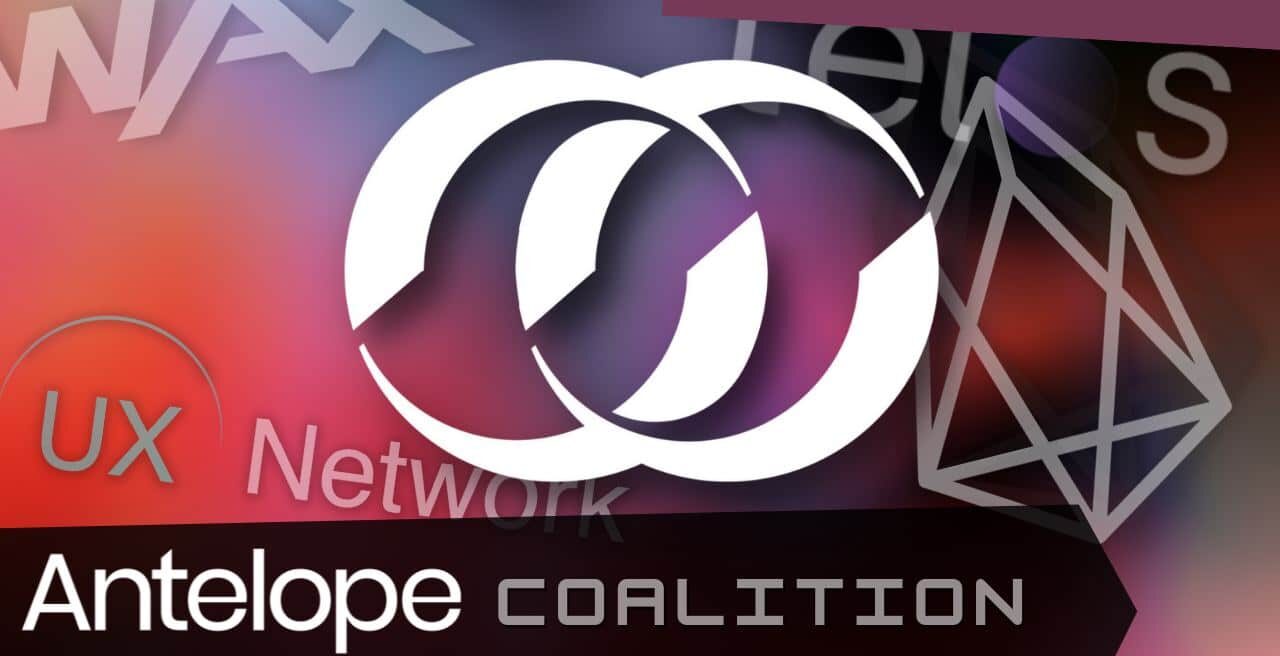The Antelope Coalition features members of the EOS, WAX, Telos, and UX public blockchains, which pool their resources to work on a shared codebase. Each week, stakeholders join in a meeting to provide updates and requirements for new initiatives on the Antelope software stack.
In this week’s Coalition meeting, members outlined their highest priorities and shared the milestones different working groups achieved. Milestones close to completion or complete include IBC Governance, the Secure Smart Contract Library, Instant Finality, and the Software Development Kit. Priorities for the Coalition include Documentation, Developer Onboarding, Smart Contract tooling, RAM limitation fixes, Provable state domains, a revised P2P RFP, and hardware wallet support.
Ledger App Support
The Coalition has identified the maintenance of Ledger and Trezor hardware wallet app support as a major priority. Eric Passmore had an initial meeting with the Ledger support team and discussed with Bart Wyatt how Ledger support would work. A progress update is forthcoming, but in the interim, it appears they’re making progress. Ted Cahall and Jeff Werner will provide an update about Ledger support next week.
New P2P RFP
Peer-to-peer rewrite is a coalition priority that improves block producers, API nodes, and other nodes’ communication. This project aims to improve sync time for nodes, as well as reduce the complexity of block producer infrastructure.
The Coalition voted on the new P2P request for proposal, and all members (representatives from EOS, WAX, Telos, and UX) agreed to move forward with the RFP. Jeff Werner will coordinate the release of this RFP.
IBC Governance
The IBC initiative, which allows for seamless and trustless communication between Antelope chains, is quickly achieving its milestones with the hard work of blockchain developers from 0rigin.
In the Coalition call, Guillaume Tremblay from the 0rigin team reviewed his call on Monday about IBC governance, which is a major milestone for the Inter-Blockchain Communication RFP. Bart Wyatt, ENF CTO, will review the summary document and request a follow-up call on Monday, November 7.
Reprioritization of Top Agenda Items
Several months ago, the Antelope Coalition went through potential development initiatives and collectively ranked them by priority. This week, they revisited these efforts and re-prioritized them, taking into account the past months of research and development.
As voted on by the group, the top proposals relate to Smart Contract tooling, RAM limitation fix research, Provable state domains, and the revised P2P RFP.
ENF principal engineer Bucky Kittinger will lead Smart Contract Tooling, while the ENF’s Areg Hayrapetian and 0rigin’s Guillaume Tremblay will lead the Provable State Domains initiative.
RAM limitation fixes and a revised P2P proposal are still at the RFP stage. The RAM limitations RFP is a research-based proposal. The P2P rewrite is a proposal for production-level code, but the Coalition revised the RFP into smaller pieces and will re-open it to proposals.
Secure Smart Contract Library
The Secure Smart Contract Library is a development effort that provides standard boilerplate smart contracts that developers can use in their contracts. The Secure Smart Contract Library is approaching completion, and the team has arranged a review meeting for Tuesday, November 8.
Developer Onboarding and Development Workshops
Another important Coalition priority is creating workshops to help onboard developers and teach them the intricacies and considerations of building on the Antelope software stack. OCI will likely provide much of this content, but meetings with OCI are still ongoing.
Instant Finality and IBC
The ENF has completed the internal review of 0rigin’s IBC contracts. Based on the review, it appears that the code is ready. The next step is to start an audit, and the 0rigin team will set up a call for next week to get the process started. Several groups will help review and deploy the proof server, which is an essential part of the IBC solution.
Based on these developments, the Coalition voted to release the payment for 0rigin’s IBC milestone (Timestamp). Jeff Werner will coordinate this payment.
Wallet SDK
Greymass, the team behind the popular Anchor wallet, is working on a wallet Software Development Kit (SDK) to assist developers with integrating Antelope blockchains into their applications. Greymass has started on the core components of this SDK and made significant progress on branding. The team will give a branding demonstration to share this progress in the next two weeks.
About Antelope
Antelope is an open framework for building next-generation web3 products and services. Its community-run codebase is behind some of the fastest, most secure, and user-friendly blockchains, reliably fulfilling millions of daily transactions with its innovative DPoS algorithm. Developers and businesses worldwide use Antelope for a diverse range of applications, from DeFi and supply chain management through to NFTs and games.
Learn more: https://antelope.io
EOS Network
The EOS Network is a 3rd generation blockchain platform powered by the EOS VM, a low-latency, highly performant, and extensible WebAssembly engine for deterministic execution of near feeless transactions; purpose-built for enabling optimal web3 user and developer experiences. EOS is the flagship blockchain and financial center of the Antelope protocol, serving as the driving force behind multi-chain collaboration and public goods funding for tools and infrastructure through the EOS Network Foundation (ENF).
EOS Network Foundation
The EOS Network Foundation (ENF) is a not-for-profit organization that coordinates financial and non-financial support to encourage the growth and development of the EOS Network. The ENF is the hub of the EOS Network, harnessing the power of decentralization as a force for positive global change to chart a coordinated future for EOS.



